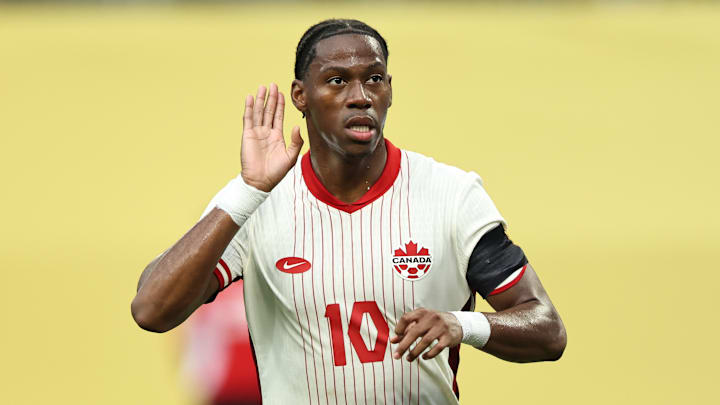Days when Juve would splash the cash to get the best players appear to have deserted the Turin titans.
It was therefore essential for the club’s finances that they secured Champions League soccer next season. This was only achieved courtesy of rival teams slipping up in the final run-in.
Juve had to fork out €15m (US$17.6m) to dismiss Thiago Motta as manager in March. The club still pays Motta’s salary, until it expires in June 2027, unless he secures a new managerial position.
Motta has already turned down offers to coach in Brazil, and he appears to be in no real hurry to return to a dugout.
His replacement managed just one away win, the 3-2 triumph at Venezia on the last day of the season, with Igor Tudor installed as interim head coach.
Maximum points in Venice earned Juventus the coveted fourth position, to earn Champions League soccer, and sent their opponents tumbling into Serie B next term.
Tudor over Mancini
The fact that Tudor was selected as interim head coach for nine matches, preferred over former Italy manager Roberto Mancini, was partly due to the club saving big bucks. The Croatian 47-year-old was paid €0.5 million (US$0.6m) for his troubles.
Tudor was the cheaper option compared to trophy-laden Mancini, who wanted the guarantee of being paid to tackle the cash-rich 2025 FIFA Club World Cup.
Yet Tudor, brought in as a short-term troubleshooter, decided to play hard ball with the club’s hierarchy straight after the final day victory.
The club caved in to Tudor, who managed to successfully land the role of permanent head coach in time to compete at the Club World Cup.
There were other managers higher on the club’s wanted list. This included former Juventus manager Antonio Conte, who had just won the Scudetto with Napoli.
Conte has a reputation throughout his coaching career for demanding money to land his targets. Juve, despite all their bravo, were unable to guarantee such a spending spree.
No-go for Conte and Xavi
Juve’s inability to splash the cash would have deterred the likes of Conte and other high-profile names,such as ex-Barcelona boss Xavi.
Second-choice Tudor was the frugal option for Juventus. He has inherited a squad that was very much part of the planned three-year Project Motta.
He has some expensive flops that arrived last summer, and could have been better equipped for the forthcoming season had the club not permitted Motta so much freedom to get rid of pivotal players.
Cristiano Guintoli was extremely lenient with Motta’s decisions about who should come and go. The former Juve sporting director paid the price for Motta’s failure, with his long-term contract terminated by mutual agreement after two years in the role.
Avoiding reckless repeat
The Bianconeri won’t want a repeat scenario of reckless transfer transactions. Recently appointed Juve general manager Damien Comolli has set an initial summer transfer budget of just €50m (US$60m).
Although some of the €32m (US$37.5m) earned from their Club World Cup campaign, which ended in the last 16 at the hands of Real Madrid, could be utilized on the transfer market.
If the club can offload players for decent transfer fees, such as midfielder Douglas Luiz and striker Dusan Vlahovic, they will have more money to play around with.
Already Juventus have over a dozen players that they want to sell or loan out, waiting for the money to arrive before buying. This explains why the Bianconeri appear to be constantly hesitating over bringing in new players.
Freebie David is a coup
Juve have saved a small fortune with their coup of marquee signing Jonathan David, who arrived without a transfer fee needing to be paid.
The Canada international hot-shot has just joined as a free agent, after letting his contract with LOSC Lille wind down until the end of last month.
Juve’s lack of financial depth means that they are likely to gamble on outcasts from other clubs, who urgently require their career to be kickstarted or relaunched. That is probably going to result in bringing in loanees.
Motta's mistakes realised
Motta was very dismissive of the squad he inherited, which clearly showed lack of all-round top management acumen.
Forcing players out failed to pay dividends, with Nicolo Fagioli, Dean Huijsen and Moise Kean some of those he rejected that enjoyed impressive 2024/25 campaigns.
Tudor, like Motta, employs tactics and formations that he refuses to waver from. Tudor’s 3-4-2-1 approach is all about aggressive pressing.
He has favorites within his squad, and seems to only give fringe players a chance if there’s an injury crisis or suspensions. There doesn’t seem much chance of Tudor elevating Juventus Next Gen players.
Tudor will want instant results next season, regardless of whether the matches are easy on the eye and entertaining. From what he has shown at Juve so far, he favors experience to compete over energetic and fearless youth except for Turkish talent Kenan Yildiz.
Loaning out players
Yet the club should be looking at long-term profits rather than short-term. Surely it is best to loan out emerging players who need more experience, instead of selling for a bargain price.
Vasilije Adzic, Livano Comenencia, Samuel Mbangula and Jonas Rouhi could all be sold under Tudor but maybe would benefit the club by being loaned out to get senior minutes under their belt.
Tudor has also inherited two extensive lists of transfer targets from Guintoli, which are divided into costly acquisitions and those at cut-price.
Until players are sold, it is highly probable that Juve will be fielding many from the bargain basement that may not cut the mustard in the Champions League and leave Tudor in trouble.
